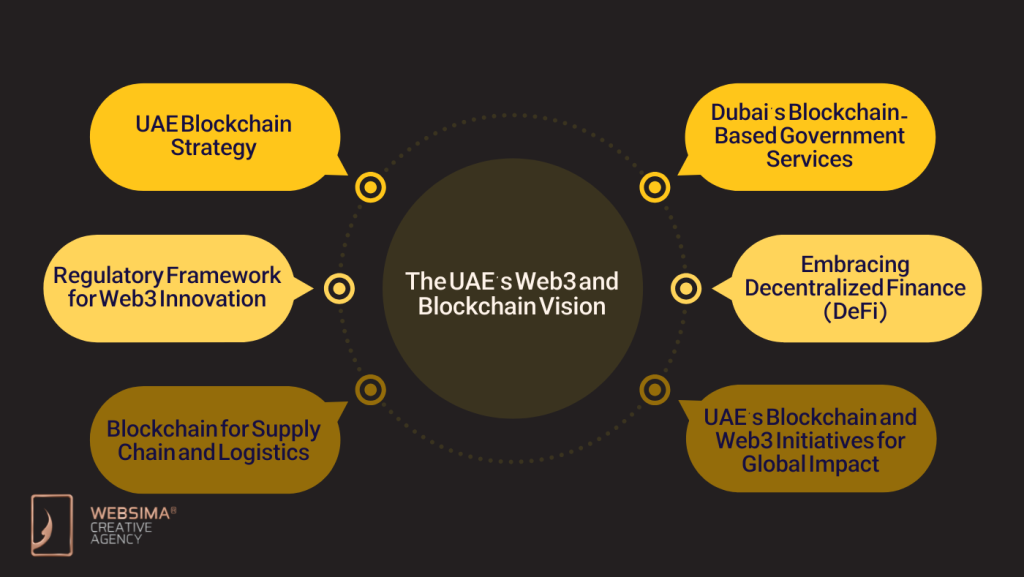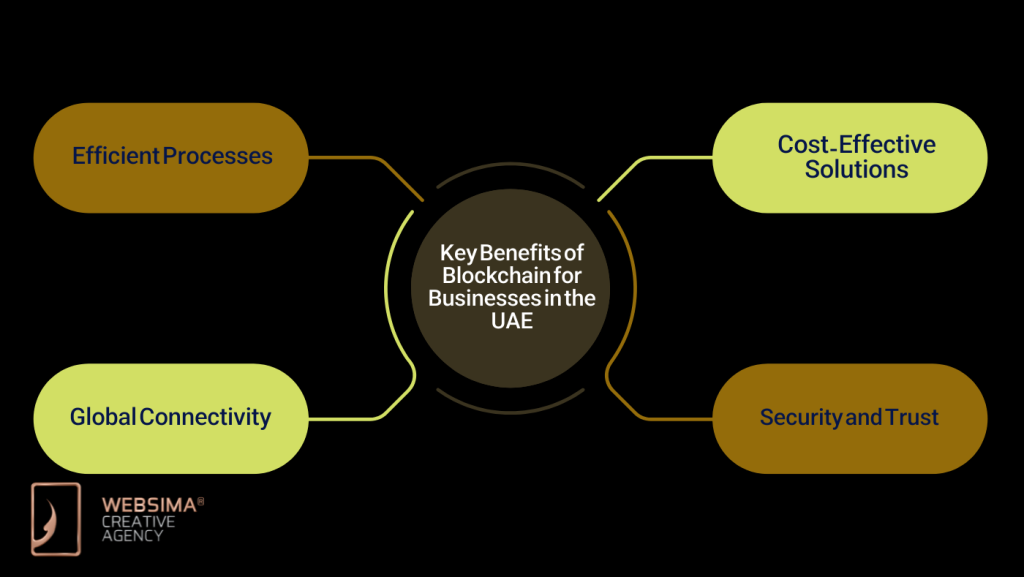The UAE is emerging as a global leader in the adoption of Web3 and blockchain technologies. With a vision to position itself at the forefront of the digital economy, the UAE has committed to integrating these disruptive technologies into a wide range of sectors, including finance, government services, healthcare, and real estate. The government’s progressive approach to blockchain and Web3 innovation is creating a conducive environment for businesses to innovate and thrive. This article will delve into the UAE’s Web3 and blockchain vision, how it is shaping the future, and the key initiatives that are driving this transformation.
Big win for crypto adoption in the UAE!
The DFSA’s approval of USDC & EURC “positions Dubai as a blockchain innovation hub” and challenges USDT’s dominance, says Ryan Lee, Bitget Research.
Read more https://t.co/BEbadaL8bv
— Bitget (@bitgetglobal) March 14, 2025
What is Web3 and Blockchain Technology?
Before diving into the UAE’s vision, it’s important to clarify what Web3 and blockchain technology entail.
Blockchain is a decentralized, distributed ledger technology that ensures secure, transparent, and tamper-proof transactions. Its capabilities go beyond cryptocurrency, offering a wide range of applications in various industries, including finance, healthcare, and governance.
Web3, the next iteration of the internet, aims to decentralize the web. It utilizes blockchain to create an ecosystem where users have control over their data, digital identities, and online transactions, removing the reliance on centralized intermediaries like social media giants, banks, and governments. Web3 will reshape digital interactions, ushering in an era where users can directly interact with services in a decentralized and transparent manner.
The UAE’s Web3 Blockchain Vision
The UAE and in particular, Dubai is becoming a hub for blockchain startups as they have recognized the transformative potential of Web3 and blockchain, positioning itself as a forward-thinking nation in embracing these technologies. The UAE government’s vision is centered around fostering innovation and creating a robust regulatory framework that supports Web3 blockchain ventures.
Exclusive: UAE Ministry of Energy and Infrastructure to Integrate Shiba Inu’s Web3 Operating System in Historic First for Governments – The Technology Express https://t.co/lOKb9huMU6
— Infinite | Shibarium ⛓️ (@CryptoArmy555) February 4, 2025

1. UAE Blockchain Strategy
In 2018, the UAE launched the UAE Blockchain Strategy 2021, a roadmap to transform the country into a leader in blockchain technology. The goal of the strategy is to implement blockchain in government services, making Dubai a paperless city by 2021. This ambitious plan aims to make 50% of all government transactions blockchain-based, streamlining processes, increasing efficiency, and improving transparency.
The strategy also aims to boost the UAE’s economy by attracting blockchain-driven businesses and creating a conducive environment for blockchain and Web3 adoption across all sectors.
2. Dubai’s Blockchain-Based Government Services
As part of the UAE’s vision, Dubai has been a pioneer in implementing blockchain-based solutions within government operations. The city’s Smart Dubai initiative is focused on enhancing the efficiency of government services through the integration of blockchain technology.
Dubai is home to several blockchain-based projects that improve government processes. For example, the Dubai Land Department introduced a blockchain-based real estate platform to streamline property transactions, making them faster, transparent, and more secure. Similarly, the Dubai Health Authority has been using blockchain to ensure the security and privacy of patient records, while the Dubai Police has integrated blockchain to streamline operations and enhance transparency in law enforcement.
3. Regulatory Framework for Web3 Innovation
The UAE has, in fact, built a robust regulatory framework to encourage blockchain and Web3 innovation. A key initiative, for example, is the Dubai International Financial Centre (DIFC), which launched a dedicated FinTech and blockchain hub. The DIFC’s regulatory framework, therefore, encourages the use of blockchain and Web3 solutions in the finance and banking sectors, allowing for cryptocurrency exchanges, initial coin offerings (ICOs), and, as a result, the development of decentralized finance (DeFi) platforms.
The UAE’s role in the global blockchain ecosystem is significant by applying a proactive regulatory approach to support innovation while maintaining compliance with global standards. This forward-thinking framework enables businesses to explore and develop Web3 applications, fostering an ecosystem of growth and opportunities for startups and large corporations alike.
4. Embracing Decentralized Finance (DeFi)
The future of Decentralized Finance (DeFi) in UAE sounds promising as the UAE has embraced DeFi (Decentralized Finance), which is one of the most prominent applications of Web3 and blockchain technology. The UAE’s vision for DeFi aligns with its broader goal of diversifying the economy and attracting international investors.
Dubai’s DIFC has created a sandbox for DeFi startups to operate in a controlled environment while ensuring compliance with financial regulations. This initiative allows DeFi platforms to test their blockchain-based financial products before launching them to the broader market. The government is also collaborating with various fintech companies to create a thriving DeFi ecosystem, allowing consumers to access decentralized financial services such as lending, borrowing, and trading.
5. Blockchain for Supply Chain and Logistics
The UAE is also leveraging blockchain and Web3 technology to revolutionize supply chains and logistics. Blockchain’s ability to provide transparency, traceability, and real-time updates makes it an ideal solution for optimizing these industries. The Dubai Chamber of Commerce has been actively promoting the adoption of blockchain in supply chain management, helping businesses track products and verify the authenticity of goods throughout the supply chain.
Dubai-based companies such as DP World are leading the charge in integrating blockchain to optimize port and logistics operations, significantly reducing inefficiencies and enhancing global trade.
6. UAE’s Blockchain and Web3 Initiatives for Global Impact
The UAE’s commitment to Web3 and blockchain technology extends, moreover, beyond national borders. The country is, therefore, positioning itself as a global blockchain hub, aiming to attract international blockchain startups and create, as a result, a network for collaboration with countries worldwide. The UAE’s Blockchain Council, in collaboration with global tech firms, also aims to develop international standards for blockchain, thereby promoting interoperability across different blockchain ecosystems.
Additionally, Dubai has hosted various blockchain and Web3-related events, such as the Future Blockchain Summit, which brings together industry leaders, innovators, and regulators from across the globe to share knowledge and collaborate on the future of blockchain technology.
The Role of Blockchain in UAE’s Future Economic Landscape
Blockchain and Web3 will play an integral role in diversifying the UAE’s economy, moving beyond traditional sectors like oil and gas and expanding into the digital economy. The UAE aims to attract global tech giants, startups, and investors by providing a favorable ecosystem that supports the development and growth of blockchain-based businesses.
By fostering innovation in sectors such as finance, real estate, logistics, healthcare, and government services, the UAE’s Web3 blockchain vision promises to create new opportunities for businesses and individuals, driving economic growth and global competitiveness.
Key Benefits for Businesses in the UAE

- Efficient Processes: Blockchain’s decentralized nature enhances efficiency in business operations by reducing intermediaries and ensuring transparency.
- Cost-Effective Solutions: Blockchain offers businesses lower transaction fees, fewer administrative costs, and reduced fraud risks, making it an attractive option for companies across industries.
- Global Connectivity: Blockchain enables businesses in the UAE to connect and collaborate globally, improving cross-border transactions and expanding market reach.
- Security and Trust: Blockchain’s immutability and transparency provide a secure and trusted environment for businesses and consumers to engage in digital transactions.
Bottomline
The UAE’s Web3 blockchain vision is, without a doubt, rapidly transforming the country into a global hub for blockchain innovation. From government services to financial institutions, healthcare, logistics, and beyond, blockchain and Web3 are, in turn, revolutionizing the way industries operate and interact. With its forward-thinking policies, regulatory frameworks, and initiatives, the UAE is, therefore, positioning itself as a leader in the digital economy, attracting global talent, investments, and technological advancements.
As Web3 and blockchain technologies continue to evolve, the UAE’s unwavering commitment to fostering innovation will, consequently, ensure that the country remains at the cutting edge of the digital revolution, driving growth, sustainability, and prosperity for years to come.
About Websima
If you’re looking to integrate blockchain or Web3 technologies into your business in the UAE, Websima is a leading service provider. We offer blockchain and Web3 development, crypto integration, smart contract programming, and full-scale Web3 company establishment services in Dubai.
Join the digital revolution and take advantage of the UAE’s blockchain initiatives. Contact us today to learn more about how Websima can help bring your business into the future of blockchain technology.





